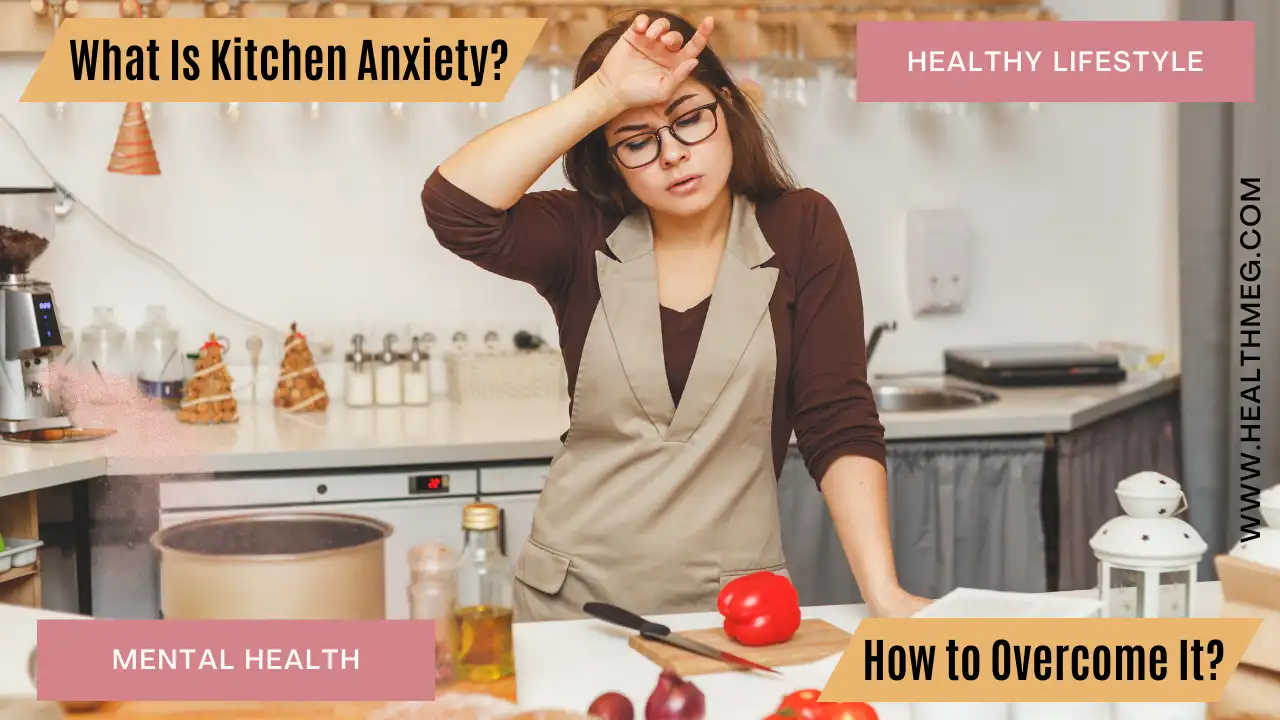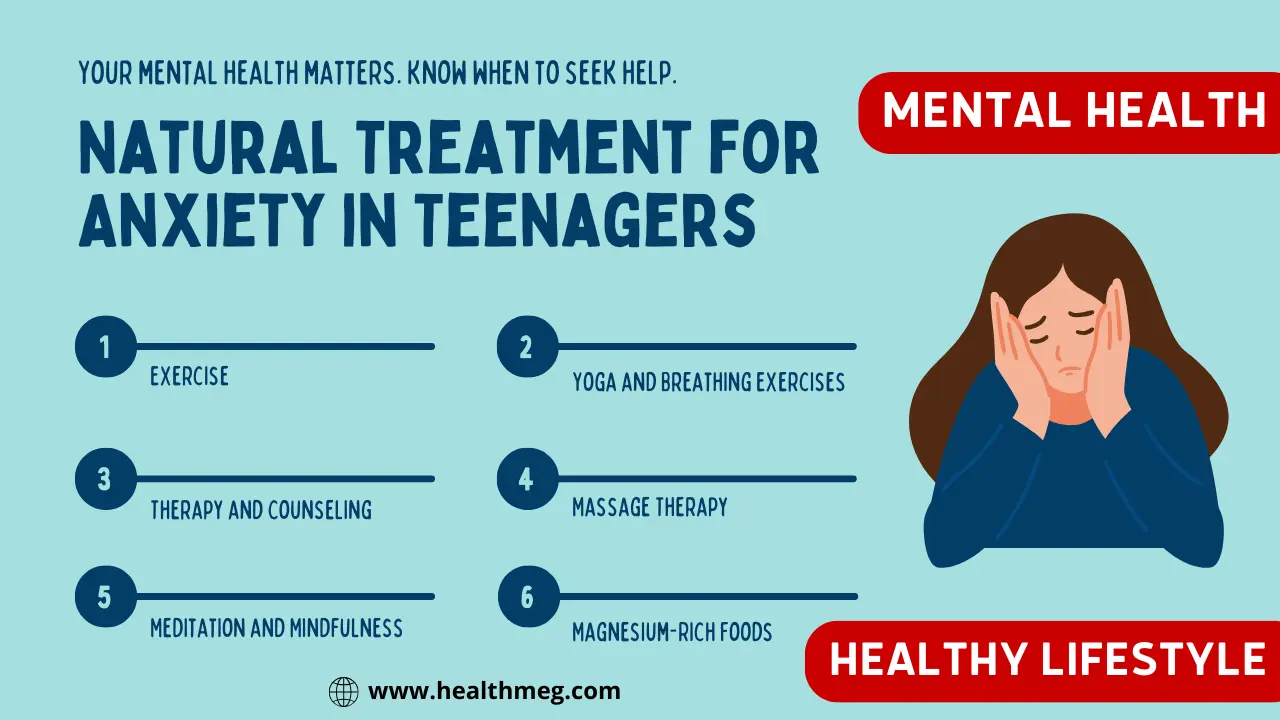Introduction
Kitchen anxiety is a real and common issue that many people struggle with. It refers to feelings of stress, nervousness, or worry that arise when cooking or being in the kitchen. While it may seem trivial to some, kitchen anxiety can greatly impact the quality of life and make what should be an enjoyable activity quite troublesome.
In this comprehensive guide, we’ll dive into the causes, symptoms, and solutions for overcoming kitchen anxiety so you can reclaim your love of cooking.
Do read the People Also Ask (FAQs) about this topic.
What Is Kitchen Anxiety?
Kitchen anxiety refers to feelings of stress, nervousness, or worry that arise when cooking or being in the kitchen. This anxiety can occur even when performing simple cooking tasks.
Some common signs of kitchen anxiety include:
- Feeling tense, rushed, or overwhelmed in the kitchen
- Avoiding cooking or spending time in the kitchen
- Having an intense fear of making mistakes while cooking
- Feeling like you’re being judged by others in the kitchen
- Constantly second-guessing cooking abilities and techniques
The level of anxiety can range from moderate uneasiness to severe dread that hinders one’s ability to function comfortably in the kitchen. In extreme cases, kitchen anxiety may require professional help through counselling or therapy.
What Causes Kitchen Anxiety?
There are a few key factors that commonly trigger kitchen anxiety in people:
1. Fear of Failure
For many, the root of kitchen anxiety is a fear of making mistakes or ruining a recipe. Cooking can feel high pressure, especially when cooking for others. The fear of under seasoning a dish, overcooking meat, or even just presenting an unappealing plate causes stress for those predisposed to kitchen anxiety.
2. Fear of Judgement
Similarly, being judged on cooking abilities is another worry for some. Whether it’s criticism from a spouse, kids being picky eaters, or just the general idea of guests critiquing a meal, the kitchen can feel like an exposed stage. The fear of harsh judgement on skills leads to anxiety for some home cooks.
3. Feeling Disorganized
The kitchen can be a hectic place with lots of multitasking required. For those who don’t feel confident in their organizational skills, the kitchen environment can heighten stress and anxiety levels. Not knowing which prep task should be done when or forgetting key ingredients can make the cooking process overwhelming.
4. Feeling Unskilled
A lack of cooking knowledge and skills can also lead to kitchen anxiety for some people. Not understanding cooking techniques, terminology, or proper tool usage can leave people feeling out of their depth in the kitchen. Without a solid foundation of culinary skills, it’s understandable why the kitchen is a stressful place.
5. Time Pressures
Another source of kitchen anxiety is feeling pressed for time when cooking. Having guests arriving soon, kids needing to eat, or just wanting to get food on the table creates a time crunch. This rush can lead to a stressful cooking experience for those prone to anxiety.
6. Sensory Overload
For some individuals, mostly those with conditions like autism or ADHD, the intense sensory elements of the kitchen create feelings of being overwhelmed. The sounds of appliances running, strong food aromas, multi-tasking movements, and general kitchen chaos can overstimulate the senses. This sensory overload then triggers their kitchen anxiety.
7. Past Trauma
In some cases, kitchen anxiety stems from past traumatic experiences in the kitchen. This could include events like cooking-related injuries, fires, or other kitchen accidents. These frightening events understandably create ongoing kitchen anxiety.
Common Symptoms of Kitchen Anxiety
Feelings of anxiety in the kitchen can manifest in various physical and psychological symptoms, including:
- Accelerated heart rate, rapid breathing, tightness in the chest
- Nausea or “butterflies” in the stomach
- Sweaty palms and shakiness
- Avoidance of cooking or asking others to cook instead
- Strong urge to leave the kitchen or “escape”
- Difficulty focusing or concentrating
- Irritability or short temper
- Perfectionism and fear of failure
- Self-criticism and negative self-talk
- Dread at the idea of cooking
- Delaying meal preparation until the last minute
- Ordering takeout instead of cooking
If several of these signs and symptoms ring true for you, you may be experiencing kitchen anxiety. The extent of anxiety can range from moderate trepidation to severe panic when cooking. But now there are many effective strategies to help overcome this anxiety, which we’ll now discuss.
Tips for Overcome Kitchen Anxiety
The good news is kitchen anxiety can be mitigated and controlled with various coping mechanisms and strategies. Here are some of the most effective ways to address kitchen anxiety:
Start Small
Don’t bite off more than you can chew, literally and figuratively. Start with very simple recipes that require minimal ingredients and techniques. This prevents becoming overwhelmed. Work your way up to more complex recipes as your confidence grows.
Prep Ahead
Do as much prep work ahead of time as possible – chop ingredients, measure things out, etc. That way when you’re ready to cook, the ingredients are ready to go. Prepping ahead helps create a less chaotic cooking environment.
Use Visual Aids
Have recipes, cooking charts, or guides handy so you can reference them as needed. Displaying helpful visuals reduces stress and builds confidence. They can guide you if you feel lost mid-cooking.
Clean As You Go
A cluttered, messy kitchen creates anxiety for many. Wash dishes, wipe counters, and put ingredients away as you cook – this maintains a calm environment.
Learn Skills
Take a cooking class or brush up on basic techniques by reading guides or watching videos. Solid fundamental skills lower anxiety levels in the kitchen. Knowing how to chop, sauté, season, etc makes cooking less intimidating.
Organize Your Space
Clutter creates chaos which breeds anxiety. Keep your cooking space neatly organized. Put utensils and pans where they’re easily accessible. An organized environment promotes a sense of control.
Plan Meals
Decide on meals and write grocery lists ahead of time. Unplanned, last-minute cooking promotes anxiety. Meal planning eases stress and gives purpose in the kitchen.
Focus on Joy
Cooking should be an enjoyable activity. Remind yourself to have fun and don’t put pressure on perfection. Kitchen anxiety stems from rigid expectations. Let go and remember to smile!
Breathe Deeply
When kitchen anxiety strikes, take some deep belly breaths to calm your nerves and clear your mind. Deep breathing prevents anxiety from spiralling out of control.
Challenge Inner Critic
Anxiety arises from negative self-talk like fearing mistakes and judgement. Challenge and silence your inner critic. Don’t beat yourself up over a burnt dish. Progress takes patience.
Seek Inspiration
Read cookbooks, and food blogs, and take cooking classes. Surrounding yourself with inspiration cultivates creativity and passion in the kitchen. Doing so reminds you why cooking brings joy.
Cook Mindfully
Focus your full attention on each cooking step instead of worrying about the final results. Stay present in the cooking process and your anxiety will subside.
Arm Yourself with Knowledge
Understanding cooking terms, techniques, safety practices, etc gives you confidence in the kitchen. Seek out resources to expand your culinary knowledge base.
Start a Cooking Journal
Recording recipes, mistakes, and lessons learned provides an encouraging record of your growth. Look back at early entries and see how far you’ve come on your cooking journey.
Try Therapy
For severe anxiety, seeking counselling provides fresh coping strategies. Therapists teach techniques tailored to your unique kitchen anxiety triggers.
The kitchen should be a place of joy and creativity, not dread. With regular practice of anxiety-reducing strategies like these, kitchen anxiety can be successfully overcome. In many cases, the kitchen transforms into a stress-free sanctuary.
While conquering kitchen anxiety requires patience and perseverance, know that you’re not alone. Many others have navigated through these same struggles. With the right mindset and techniques, anxiety gradually gives way to capability and confidence.
Developing Confidence in the Kitchen
Gaining confidence in cooking abilities goes hand-in-hand with relieving kitchen anxiety. Once those fears and worries subside, space is created for confidence to bloom. Here are some great ways to actively build confidence in the kitchen:
Master Basic Cooking Skills
Having mastery over fundamental skills like chopping, sautéing, baking, broiling, poaching, etc gives you a solid culinary foundation. With practice, these skills become second nature and create confidence.
Cook Recipes You Enjoy
When you cook foods you genuinely love eating, the enjoyment outweighs the anxiety. Make dishes that bring comfort and nostalgia. Happiness boosts kitchen confidence.
Explore New Ingredients
Experimenting with novel ingredients excites the palate. Seek out produce, spices, grains and other items at ethnic grocers. Curiosity conquers anxiety.
Learn From Mistakes
When you mess up a recipe, reflect on what went wrong and how you can improve next time. Making mistakes allows you to learn and grow.
Take Cooking Classes
Classes teach new skills under the guidance of an instructor. You get hands-on experience, feedback, and a chance to ask questions which all build confidence.
Start a Cookbook Collection
Leaf through beautiful cookbooks for inspiration. Try new recipes and collect books covering your favourite cuisines. Surrounding yourself with gorgeous books boosts passion.
Cook Along With Instructional Videos
Follow along as chefs demonstrate recipes step-by-step. Their guidance gives you the ability to cook dishes seemingly above your skill level.
Automate When Possible
Use tools like rice cookers, pressure cookers, and food processors to simplify tedious tasks. The right appliances can make cooking feel effortless.
Host a Dinner Party
When you successfully cook for guests, your confidence skyrockets. Throwing a fun dinner party replaces anxiety with a sense of accomplishment.
Cook With Friends or Family
Ask someone you’re comfortable with to cook alongside you. Cooking together makes the process more relaxed and enjoyable.
Remember Your Strengths
Reflect on dishes you excel at making, like grandma’s pasta recipe. Draw confidence from the meals that play to your strengths.
When to Seek Professional Help
While implementing strategies for managing anxiety and building confidence are helpful for most, others may require more intensive assistance. Seeking professional help is wise in the following circumstances:
- Your anxiety is severe and pervasive, making cooking extremely difficult
- You experience anxiety attacks or panic when cooking
- You completely avoid cooking due to overwhelming anxiety
- Your kitchen anxiety is paired with other disorders like depression or OCD
- Anxiety medication or alcohol is needed to cook
- Your relationships or health are suffering due to kitchen anxiety
In these cases, it’s best to seek help from a qualified mental health professional who specializes in anxiety disorders. Therapists can diagnose the root causes of your kitchen anxiety and equip you with cognitive behavioural therapy (CBT) and anxiety management techniques tailored to your unique situation.
With professional guidance, even the most severe cases of kitchen anxiety can be alleviated. Treatment typically involves slowly facing fears through exposure therapy, reshaping negative thought patterns, and learning effective coping mechanisms. Although overcoming kitchen anxiety takes time and dedication, gaining freedom from it is possible.
Conclusion
Kitchen anxiety is a real challenge that inhibits joy and confidence for many home cooks. However, with the right strategies and professional support if needed, it is possible to overcome. The key is to start small, build fundamental cooking skills, and continually challenge negative thought patterns.
Rather than perceiving mistakes as failures, reframe them as opportunities for growth. Experimentation leads to discovery. Lean on inspiration from cookbooks, videos, and cooking classes to unlock creativity. Organize your space and prep ingredients ahead to prevent chaos.
Most importantly, remind yourself that cooking should be fun, not a source of dread. If anxiety Creeps in, take some deep breaths and focus your attention on the task at hand. With time and practice, anxiety gives way to capability, then confidence.
Support groups and therapy provide extra assistance for more severe cases of kitchen anxiety. Seeking help is courageous, not weak. Everyone has unique barriers to overcome.
The kitchen awaits your return, full of potential for joyful creation. Believe that you can rewire your thoughts and rediscover your natural love of cooking. Start small today, and those first brave steps will carry you miles ahead on your culinary journey.
People Also Ask (FAQs)
To wrap up, here are some common questions related to conquering kitchen anxiety:
Q) How do I overcome kitchen anxiety?
A) Some tips for overcoming kitchen anxiety include starting small with simple recipes, preparing ingredients ahead of time, learning fundamental cooking skills through classes or videos, organizing your cooking space, planning meals, focusing on enjoying the process rather than perfection, doing deep breathing exercises, challenging negative self-talk, and seeking professional help through therapy if needed.
Q) Why do I get anxiety when I cook?
A) Common causes of anxiety when cooking includes a fear of failure or judgement, feeling disorganized, lack of cooking skills, time pressures, sensory overload from kitchen sounds and aromas, and past traumatic experiences in the kitchen like injuries or fires. Identifying and addressing your specific triggers can help manage cooking anxiety.
Q) What causes anxiety at restaurants?
A) Anxiety at restaurants can stem from worries about ordering, difficulty understanding menus, fear of judgement from waitstaff, social pressures if dining with others, uncertainty about ingredients, and bustling or noisy restaurant environments that cause sensory overload.
Q) Why do I get anxiety when I order food?
A) Ordering food can trigger anxiety due to fear of stuttering or misspeaking, looking foolish if you mispronounce a menu item, struggling with indecisiveness, holding up long lines, looking anxious which exacerbates the problem further, and feeling pressure from impatient waitstaff or dining companions.
Q) How can I relax in my kitchen?
A) Tips for relaxing in the kitchen include decluttering and organizing cooking tools/appliances, playing calming music, opening windows for fresh air, infusing the space with relaxing essential oils, lighting candles, pausing to do breathing exercises, scaling back on multi-tasking, and focusing on enjoying the cooking process.
Q) Is kitchen anxiety a recognized condition?
A) While not officially classified in the Diagnostic and Statistical Manual of Mental Disorders (DSM), kitchen anxiety is a widely recognized and discussed phenomenon. A form of social anxiety disorder related to cooking, it shares many similarities with stage fright.
Q) What professional help is available?
A) Psychologists, therapists, and counsellors who specialize in anxiety disorders can provide enormous help in overcoming kitchen anxiety. Cognitive behavioural therapy (CBT) is usually recommended as an effective treatment. Support groups can also be very beneficial for sharing advice.
Q) Are medications helpful?
A) In some cases, prescribed anti-anxiety medications like SSRIs can temporarily help lower anxiety levels in the kitchen. However, medication alone doesn’t solve the underlying thought patterns causing kitchen anxiety. Therapy is needed for a long-term solution.
Q) Will I pass on my kitchen anxiety to children?
A) Not necessarily. While we subconsciously model behaviour for our kids, you also have the opportunity to teach them healthier thoughts and habits in the kitchen. Therapy can equip you with tools to avoid perpetuating anxiety.
Q) How long does it take to overcome kitchen anxiety?
A) This depends on the individual and severity of anxiety, but most see gradual improvement with 4-6 months of focused effort applying anxiety management techniques. With consistent practice, kitchen confidence constantly grows and anxiety fades. Be patient and celebrate small wins.
We hope this guide has shown that you don’t need to suffer from kitchen anxiety forever. It provides an understanding of the causes, symptoms, and most importantly, the steps you can take to rewire your thoughts and create a peaceful cooking environment.
While it takes determination and work, reclaiming your joy and confidence in the kitchen is possible. The first step is deciding today to begin facing your fears and silencing your inner critic. You’ve got this!












